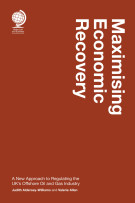East Africa: Entry requirements for upstream projects
08 July 2014

Author bio coming soon

Elison Karuhanga is an advocate in the High Court of Uganda. He is a graduate from the University of Kent, holds an LLM from the University of Aberdeen and a Diploma in Legal Practice from the Law Development Centre. Mr Karuhanga is a partner in Karuhanga, Kasajja & Co and has previously worked as a legal officer at DFCU Bank Limited and a state attorney in the Attorney General's Chambers.
Mr Karuhanga has an understanding of commercial and corporate law and a proper understanding of the Ugandan judicial system. He has been involved with regulatory reform, having represented the banking industry in land law reforms in Uganda. He has also worked for international law firm Ashurst LLP, and has a deep understanding of international trade.
Globe Law and Business consulting editor Dr Eduardo Pereira and author Elison Karuhanga discuss new upstream opportunities in East Africa and how host countries should ensure that oil and gas companies looking to invest are financially and technically capable.
Africa is one of the most underexplored regions of the world (specially East Africa). However, significant interest is developing in new hydrocarbon provinces in East Africa. For example, the US Geological Survey has estimated that 253 trillion cubic feet may lie off the coasts of Kenya, Tanzania and Mozambique. Recent discoveries in the region have attracted a great amount of international attention (especially in the liquefied natural gas markets).
Given the existence of proven hydrocarbon reserves and the large areas to be explored, the appetite of investors in East Africa is likely to increase. However, the question that any host government should be asking is who is interested in their countries. While the qualification process in a bid round or direct negotiation might be fairly simple and straightforward under most hydrocarbons codes (in comparison with the fiscal regime and contractual framework), it is not well observed in quite a few Eastern African countries.
Some countries might have the luxury of implementing a lengthy, slow and complex qualification process; but not all countries can afford this type of process, as investments are required to explore their hydrocarbon potential. The urgency of raising investments might encourage some countries and governmental officials to speed up the process and award a contract to the first investor that knocks on their doors.
The main risk that a host government faces is the possibility that the investor is a broker rather than a serious investor. A broker will lack the technical and/or financial capability to develop the assets itself, but is rather seeking to acquire the asset from the host government and immediately flip them to a third party by acting as an intermediary.
Kenya and Ethiopia are good examples for analysis in East Africa. Both are keen to produce petroleum and to attract more investment in their petroleum industry, although they have each taken different approaches.
Ethiopia adopted more rigorous procedures for the selection of new investors. For example, no negotiation can start until a company is fully qualified under the technical and financial criteria. This can take several months (if not years). As a natural consequence, it is a long and complex process before any company can acquire new blocks. While this approach may be less agile, it provides greater certainty for all the parties involved.
Once clear rules are in place, there is less chance of disappointment in the future. For the oil company, there is the assurance that there will be no challenges against lack of transparency or unlawful rights. For the government, there is the certainty of a reputable company to take the risks and undertake the work specified in the relevant contract. However, this process has a drawback: potential investors might choose other regions to invest in, due the length of the bureaucratic process involved.
Kenya took a different route, preferring more agile procedures for the award of new blocks. Companies can begin negotiations in parallel with the qualification process and there are lower entry requirements to qualify for exploration and production activities. In less than 10 years, (nearly) all onshore blocks were awarded to several oil and gas companies. In theory, this is the dream of any petroleum ministry, because the more exploratory work that takes place, the greater the chances of success.
But the main question is: who will deliver the work? Commonly, smaller and independent players are willing to accept higher geological risks. The main issues with these junior companies are their technical experience and financial capabilities. It is more difficult to assess their qualification to deliver the work. This is why the qualification process should not be overlooked by any host country, as the consequences might be severe if the assessment is not properly conducted (especially for junior companies).
Many reputable and highly aggressive independent companies have helped to boost new discoveries, in Algeria and Uganda, among other countries. Sometimes, however, a government might award a concession or production sharing contract to an unqualified company. This unqualified entity is more likely to act as a broker to find someone else to do the work, as it lacks the technical or financial means to conduct the activities itself.
From the government’s perspective, this is the worst-case scenario. First, the minimal contractual work is likely to be delayed. Second, there is a chance that nothing will be done at all for several months or years.
Once a situation like this occurs, it means that the only way to acquire a block is through a farm-in agreement (ie, to buy a block from an existing owner), as there is no block left to offer through a bid round or direct negotiation with the government. Farm-in agreements are a fairly standard practice in the petroleum industry. But the main issue is that large independent oil companies (IOCs) and national oil companies (NOCs) are unlikely to take too much exploration risks. Independents are more likely to take the first shot; the IOCs/NOCs might come later if the situation is safer and there are proven reserves. Large IOCs and NOCs are more used to dealing with the farm-in concept and have more cash to pay for the promotion payment, as the initial company should be compensated for taking the greater risks; this is fair for all parties involved.
However, the broker deal is very different. Usually, the broker does not have money to invest in the area. It will ‘sit’ on the area until it can find someone with the necessary capabilities to invest. But in this case the promotion payment is very different, as the risk has not been reduced, but merely postponed.
The situation is usually far worse for the newcomer, as the duration of the exploration phase is unlikely to be extended to the same extent as per the initial contract, and on the top of that there is a third party seeking greater compensation than it might deserve. The most reasonable solution would be a finder’s fee, as ultimately the broker introduced a new opportunity. But some brokers seek a ‘carry-on interest’ or considerable compensation, which is unlikely to be fair as the broker does not usually undertake any significant work in the relevant asset. Thus, these brokers act as rent seekers. Ultimately, the government should make it harder for rent seekers and brokers to get their hands on prized state assets. In such a scenario, the government can only hope that an upstream company will buy out the broker and do the work itself. Otherwise, the government will have to execute the financial guarantee (if there is any) and offer the block once more.
A weak qualification process is thus likely to delay the exploration work and the entrance of proper upstream companies. As an example, Mozambique took a singular approach during its latest bid round (fourth round – 2009/2010): the government preferred to refuse all bids for six of the seven blocks, as the bidders lacked the financial and technical capabilities to perform the work.
Elsewhere, other regulatory protections are in place to avoid brokers (eg, the Sudan government requires an assignment bonus before any transfer is approved and the Moroccan government forbids any transfer before the minimum work programme is completed); but, ultimately, the broker will try to pass on the costs to the newcomer. Thus, the real protection must come from a detailed and meticulous procedure to certify the financial and technical capabilities of the interested parties and their track records within a reasonable timeframe, as excessive bureaucracy and delays might also reduce the jurisdiction’s attractiveness for new investors.
In conclusion, any host government should guarantee that any oil and gas companies seeking to work within its petroleum provinces are technically and financially capable. Failure to do so will likely impede investments in the hydrocarbon sector in East African countries and delay the expected growth of this region.













Any comments - send us an email